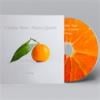
You would think that living composers these days might be intimidated by sharing a program with Ludwig van Beethoven. But Caroline Shaw is getting used to it.
First heard in Seattle last January, then elsewhere around the country, Shaw’s piano concerto Watermark posed an alternately somber and witty response to Beethoven’s Piano Concerto No. 3 using much the same instrumentation. Then at Hollywood Bowl Tuesday night (Aug. 27), she unveiled her latest composition The Observatory as a prelude to one of the grandest Beethoven canvases of all, the Ninth Symphony. In April 2020, she will share a program with the Ninth Symphony again when the North Carolina Symphony and Master Chorale present a new Shaw choral work called The Listeners, which was commissioned and will be premiered by Philharmonia Baroque Orchestra, in October in the S.F. Bay Area.
I gather there is a pattern developing here. Unlike Watermark, though, The Observatory – which gets its title from Shaw’s visit to the Griffith Observatory a few miles from the Bowl one morning in order to “clear my head” – does not overtly reference Ludwig Van, at least not upon a first hearing.
Just short of 16 minutes in length, The Observatory takes us from big, pompous, clotted chords in the opening through a repetitive riff for strings with piano blurred by dissonances. Things come down to a single three-note passage for flutes, which is developed as Shaw’s orchestrations begin to glisten. In her entertaining, at times wayward, program note, Shaw name-checks a number of quotes from famous works, though I could only hear the opening of Brahms’s First Symphony in her opening chords, along with a bit of the fourth movement, and a fleeting reference to J.S. Bach’s Third Brandenburg Concerto. Eventually the big chords come back, though altered somewhat – and that’s where the piece ends.

The Observatory plays like a stream-of-consciousness journey through various swatches of European music history and the contemporary concerns of a thoughtful, still-young American composer who is just beginning to have fun exploiting a large symphony orchestra. Fortunately, she had an excellent one to exploit, the quick-study Los Angeles Philharmonic as led on this occasion by the New Jersey Symphony’s Xian Zhang. It’s also worth noting that this was the second straight week at the populist Bowl in which a new LA Phil-commissioned work by a female composer was given its world premiere in the great picnicking outdoors.
In Beethoven’s Ninth, Zhang found herself confronting not only a monument of music history that cast a big shadow over the rest of the 19th century and beyond, but also a monument of performance history with which most of the big podium names past and present have made their marks. So, with arms flailing, sometimes wildly, Zhang chose not to open new paths of interpretation; she simply drove the piece straight-forwardly at mostly fast, streamlined tempos. Which was fine for the first movement and the demonic Scherzo to follow, but not so much for the third movement, which was stripped of its nobility by this swift jog through the countryside.
The pace remained impatient through the start of the choral finale, yet Zhang finally could relax as the LA Phil low strings sounded the famous “Ode to Joy” tune with grace and even eloquence. Bass-baritone Michael Sumuel radiated authority, tenor Toby Spence rendered the “Turkish” music with clipped phrasing, soprano Liv Redpath rose attractively above the vocal quartet, mezzo-soprano Jennifer Johnson Caro could barely be heard in the mix. From the choral entrance on to the end, with the Los Angeles Master Chorale exhibiting its habitually bright, disciplined sound, Zhang brought the Ninth home with gusto and canny pacing.




